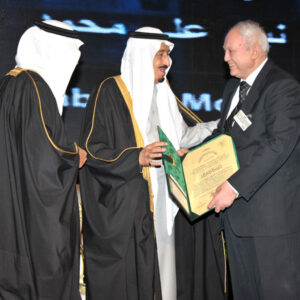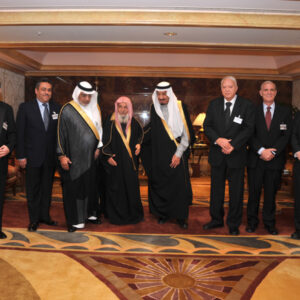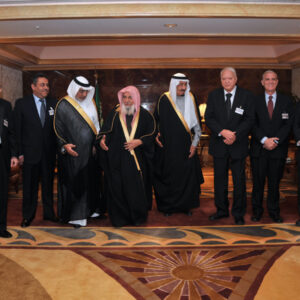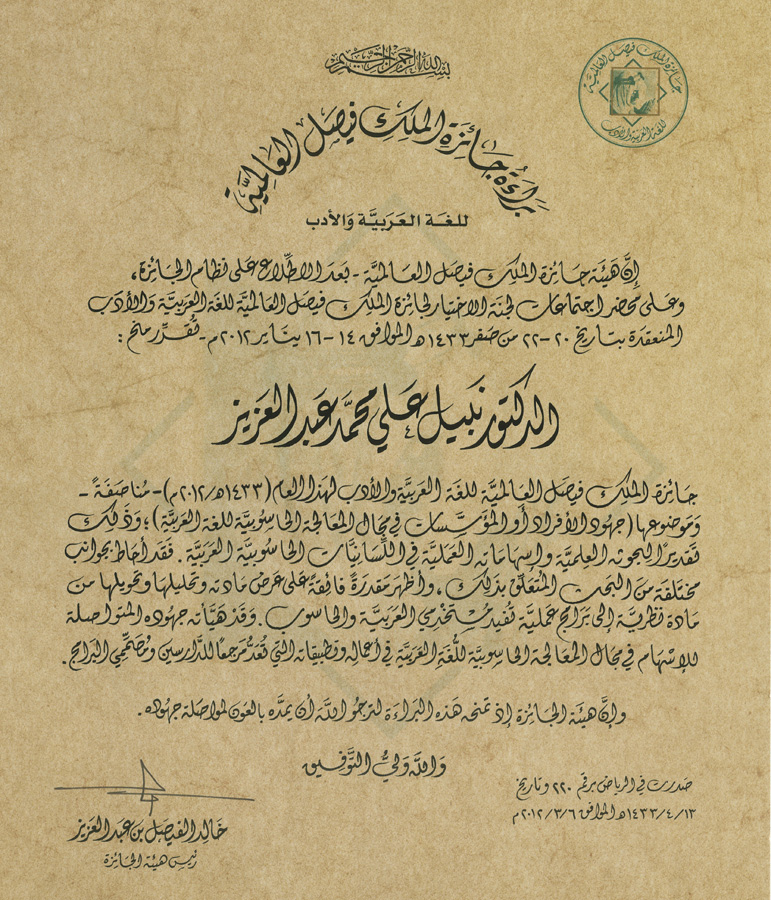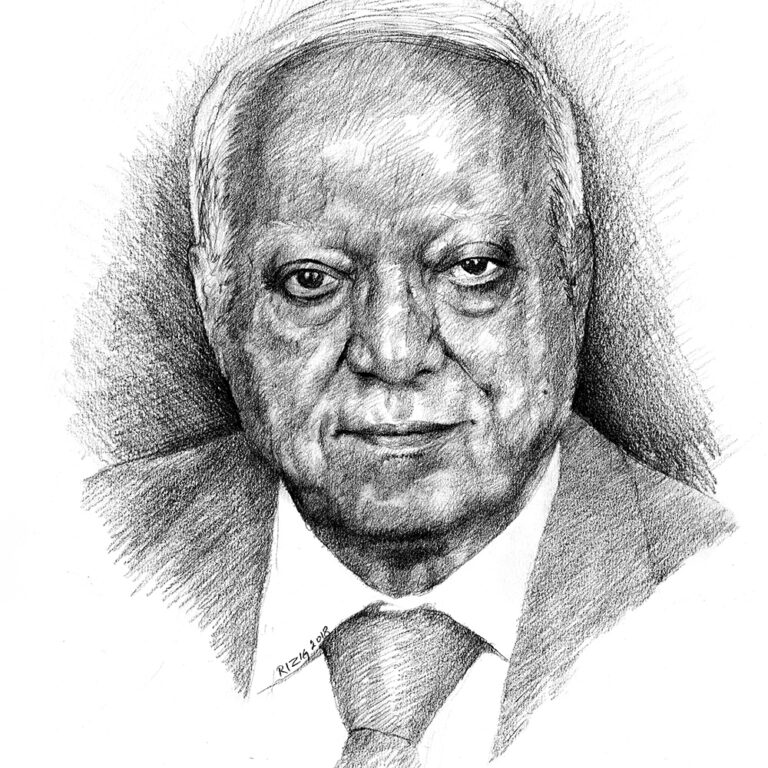
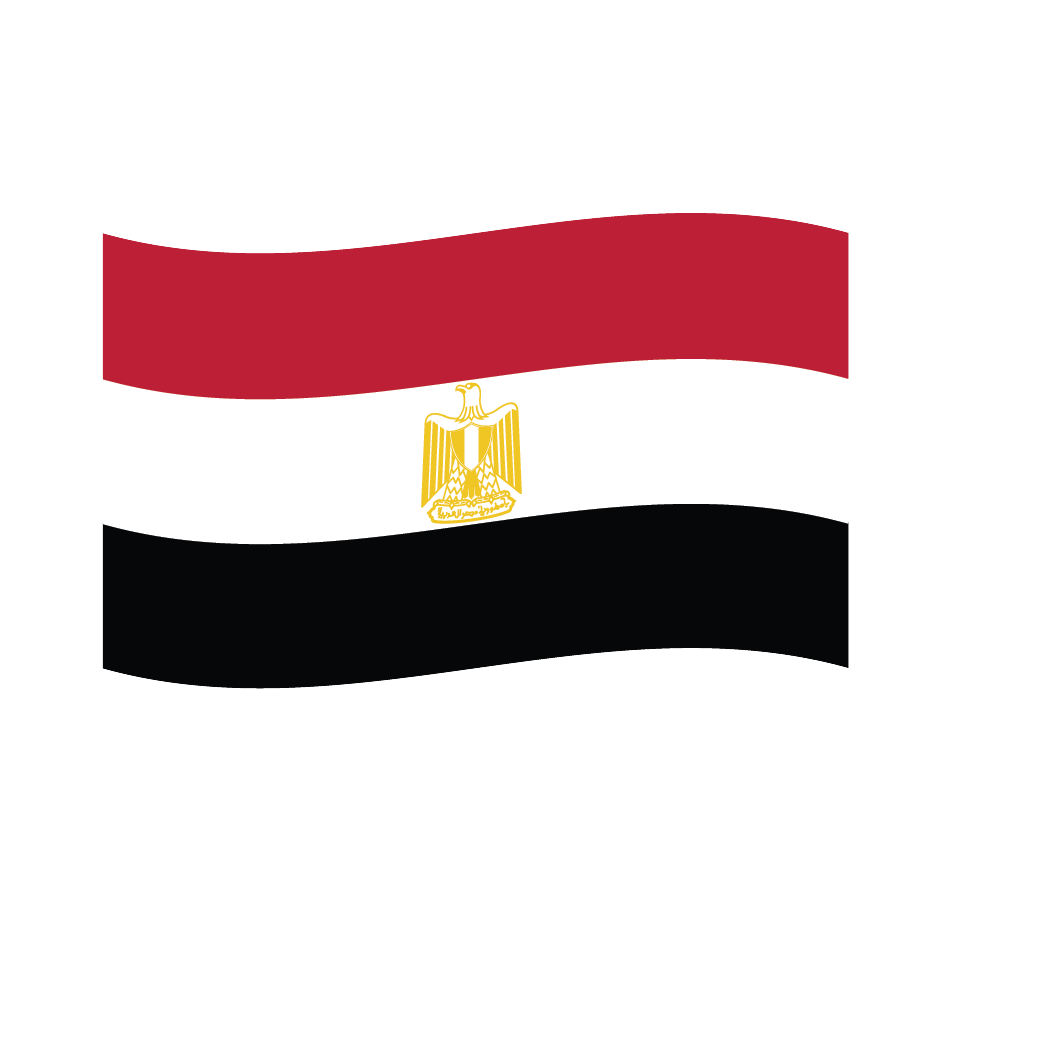
Professor Nabil Ali Mohamed
King Faisal Prize in Arabic Language and Literature 2012 Laureate
Topic: "Computer Processing of the Arabic Language: Individual and Institutional Endeavors "
Language nowadays is the key to the gate of knowledge being the heart of mankind traditions map

Nabil Mohammed received his B.Sc., M.Sc. and Ph.D. degrees in Aeronautical Engineering from the Faculty of Engineering at Cairo University. He started his professional career in 1960 as an aeronautical engineer in the Egyptian Air Force, and 12 years later, he joined Egypt Air as Data Processing Manager, where he established the first Airline Reservation System in the Arab region. From 1976 onward, he held a number of senior positions in computer applications and development in Egypt and overseas. He became Group Vice-President for Operations in the Pan Arab Computer Center in Kuwait city, Vice-President for Research and Development (R&D) in World Electronics in Athens, Greece, Consultant to Egypt-Air Chairman for information processing and operational research. Between 1981-1983, he was contracted by Georgia Institute of Technology to manage the USAID Project for establishing the Egyptian Network for Scientific and Technological Information (STI) in Cairo. For the following three years, Professor Nabil Ali was appointed Project Manager, launching Sakhr Computers and Arabic Software Company in Kuwait, and subsequently became Vice-Chairman for R&D in Sakhr Software, Cairo, then Director of Advanced Multilingual Systems (AMLS) in Cairo, specializing in Arabic Language technologies. He was a Corporate Consultant for Advanced Arabic Systems in Cairo.
Professor Nabil Ali’s pioneering contributions in the field of Arabic computational linguistics include the development of an Arabic morphological processor (analyser/synthesizer), Arabic automatic parser and Arabic diacritizer capable of automatically generating vowels. He has also developed numerous programs in the field of edu-ware and culture-ware (Arabic and bilingual) including the first Holy Quran software. Furthermore, he developed a lexical database for Arabic, using a multi-level hierarchy of semantic features, designed and developed a prototype language laboratory for teaching Arabic using information and communication technology and designed the first knowledge-based prototype for Arabic poetry.
Professor Ali also served as a part-time lecturer in the Faculty of Engineering at Cairo University, and the American University in Cairo, and was Visiting Scholar for one year at the Linguistics Department, University of California in Los Angeles, USA. He supervised post-graduate students in the fields of Arabic computational linguistics at the National Research Center in Cairo and lexico-syntactic properties of Arabic verbs in Dar al-Uloum at Cairo University. He is a member of several national and international scientific and cultural organizations and former Vice-President of the Arabic Language Engineering Society. Professor Ali published several papers, books and technical reports. His deep knowledge and remarkable ability to analyze and present his findings in the form of practical programs that benefit scholars of both linguistics and computerization fields have earned him important awards, namely: the 1994 Best Book Award in Futuristic Studies, Cairo International Book Fair; 1996 Award of Excellence for developing the Arabic Linguistic Engine, Sakhr software (described by PC Middle and Near East as the most innovative Arabic Software of the year); 2003 Best Book Award in Information Age Challenges, Cairo International Book Fair, and 2007 Creativity Award in Information Technology by the Arab Thought Foundation, Lebanon.
This biography was written in the year the prize was awarded.
Dr. Nabil Mohammed passed away in Cairo on 26/1/2016.

